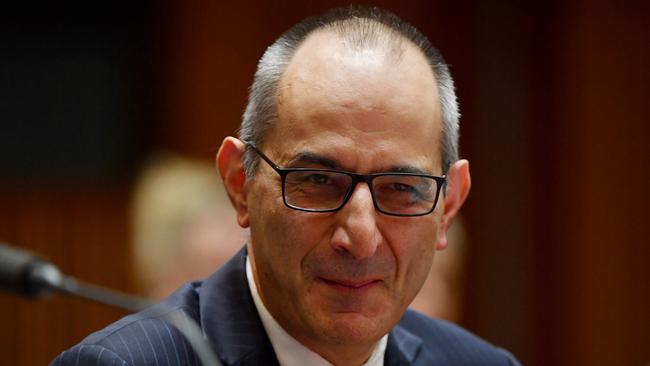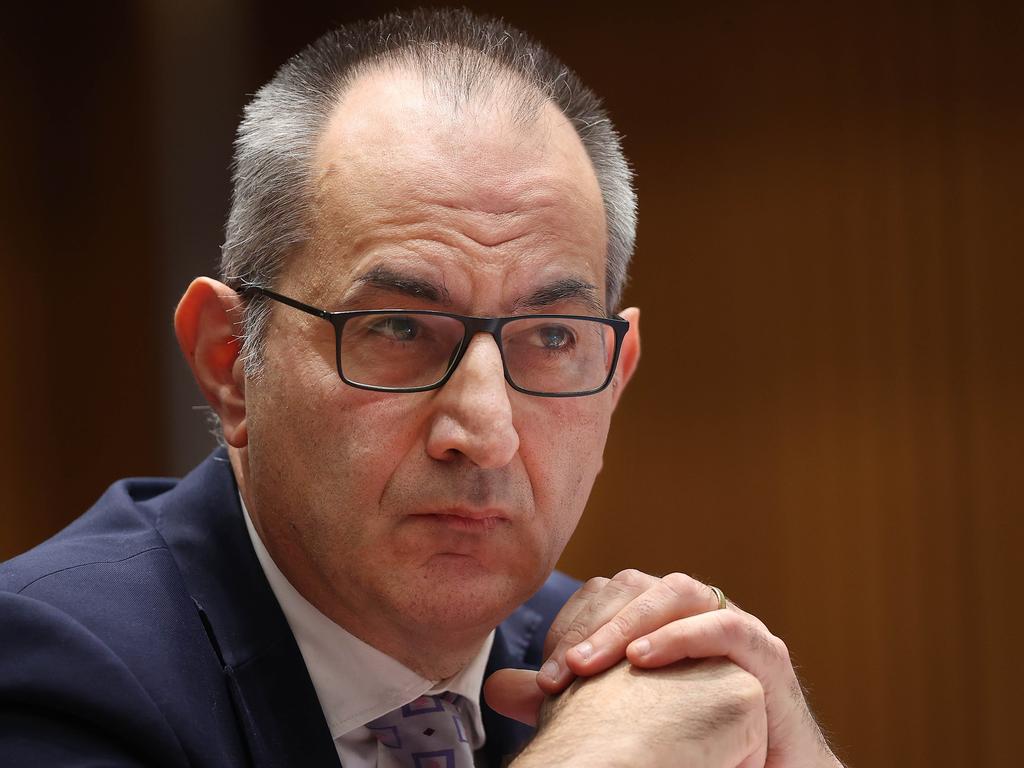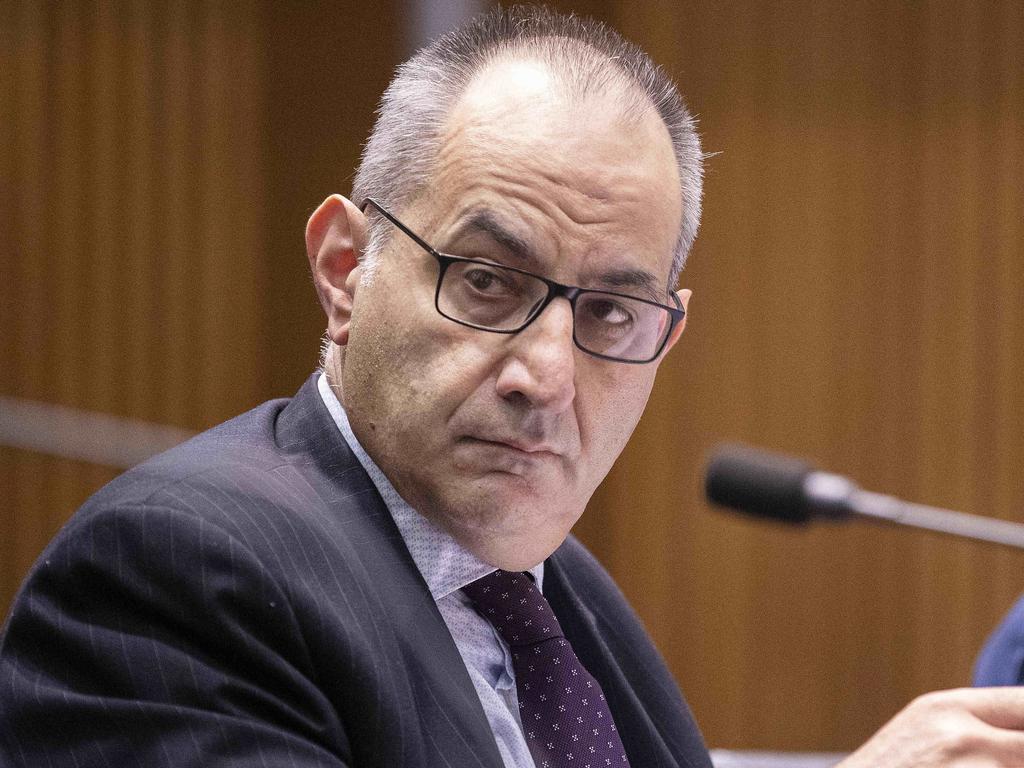Mike Pezzullo: I failed but Home Affairs sacking was wrong
Former Home Affairs secretary Mike Pezzullo has conceded he made mistakes during his time as the nation’s internal security chief, but says his dismissal by Labor over texts to a Liberal powerbroker was unnecessary.

Former Home Affairs secretary Mike Pezzullo has conceded he made mistakes during his time as the nation’s internal security chief, but says his dismissal by Labor over texts to a Liberal powerbroker was unnecessary.
Mr Pezzullo was removed last year after a review found he had broken the public service code 14 times, including using his position to gain a benefit for himself, failing to be apolitical, and engaging in “disrespectful” critiques of ministers and public servants.
Speaking on the ABC’s 7.30 program, Mr Pezzullo said he “fell short of the appropriate standards” required of someone in his position.
“I own those mistakes and I need to learn from them,” he said. “I let people down, people I cared about in terms of who I worked with and I regret not being able to continue to work with them.
“I certainly accept the finding that no matter how much rough and tumble there is in a place like Canberra, the gaining of influence and personal advantage by way of using certain channels of communication, whether to the Prime Minister or anyone else, crosses the line in terms of conduct. I accept that and I’ve paid a price.”
Among thousands of text messages to veteran Liberal Scott Briggs, Mr Pezzullo said he would “like to see Dutton come back” to the Home Affairs portfolio if Scott Morrison replaced Malcolm Turnbull in August 2018. “You need a right winger in there – people-smugglers will be watching,” he is alleged to have told Mr Briggs. “Please feed that in.”
He also made negative comments to Mr Briggs about former foreign minister Julie Bishop and former defence minister Marise Payne, and suggested he should replace the Department of Prime Minister and Cabinet head Martin Parkinson, who he described as “befuddled”, lacking “vitality” and “missing in action”.
When asked what he was hoping to gain, Mr Pezzullo denied there was a “political element” or that he wanted certain people in certain positions of power.
“The advantage was either in terms of achieving a program outcome or a policy outcome or a particular outcome in terms of resourcing the department,” he said. “It was considered, in terms of the finding, that I was using channels outside of the established mechanisms to pursue those ends. I accept that. I made a mistake.”
Mr Pezzullo did say that he didn’t think his behaviour should have seen him dismissed from his role. “I accepted at the time that there had been conduct that fell short of the appropriate standards,” he said.
“What I sought to rebut was that they were of such a grievous kind that they warranted dismissal. Obviously you don’t want your career to end on that note.
“I put an alternative view that perhaps an appropriate censure or reprimand would have been relevant or appropriate in the circumstances.”
Mr Pezzullo also hinted his behaviour wasn’t necessarily any worse than other players in Canberra. “I think a case could be made that in the rough and tumble of places like Canberra, no different from places like Washington or any other political capital, there are networks and people pursuing agendas,” he said. “Whether bureaucratic, policy or resource agendas, and I think that that behaviour can be dealt with in other ways.”
Mr Pezzullo also said that in a potential war with China, there were “three different areas” where Australia could be impacted. “FBI director (Christopher) Wray in recent times has talked quite explicitly about the intelligence he sees and the assessment and judgment he has come to that there is malwaring plantings on US networks, specifically designed to be activated in the lead up to a conflict and Director Wray has talked about the blows that could be visited on the population, taking down hospitals, electricity grids and the like.”
Cognitive warfare was the next facet that Mr Pezzullo mentioned, stating that it served to impact the morale of the people.
“Cognitive warfare, it’s a very strategic technical term, but cognitive warfare is warfare over attitude, warfare over will and warfare over perceptions,” he said. “Particularly using AI-driven deep fakes, propaganda and the like.
Finally, Mr Pezzullo said we could see physical attacks. “I would say it is unlikely to occur, but potentially you could be looking at what are called kinetic strikes onto Australian territory.”







To join the conversation, please log in. Don't have an account? Register
Join the conversation, you are commenting as Logout